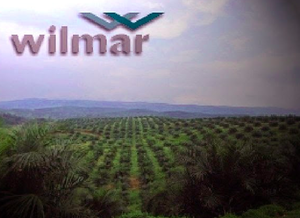
By running their operations through tax havens they can conceal transfer pricing schemes, lower their tax bills and even avoid responsibility for damages caused by companies they are invested in or supplied by.
One of the world’s biggest food traders, US-based ADM, uses a web of subsidiaries in tax havens like the Cayman Islands and Mauritius to cut its annual taxes by about half. These offshore companies also help it to obscure its close connections with the notorious palm oil corporation Wilmar International.
Wilmar, based in Singapore, amassed 600,000 hectares of oil palm plantations through deforestation and the violent eviction of local communities. Newsweek magazine ranked it as the world’s “worst” corporation in terms of environmental performance. But this criticism of Wilmar rarely spills over to ADM, one of its top shareholders. Few people appear to be aware of the offshore structure through which ADM and Wilmar are so deeply entwined.
Wilmar’s track record
In reaction to persistent negative publicity, Wilmar announced a No Deforestation, No Peat, No Exploitation policy in 2013, which it promised to fully implement by December 2015. Despite this pledge, Friends of the Earth and others have documented (see here and here) numerous environmental and social violations of this pledge at Wilmar’s operations and those of its palm oil suppliers in Indonesia, Uganda, Nigeria and Liberia.
Over the years, ADM has incrementally increased its shareholding, most recently buying shares from Sitorus, and, today it owns 20.2% of the company.
ADM’s shares in Wilmar are held through three of ADM’s wholly owned subsidiaries:
- ADM Ag Holdings Limited, in the British Virgin Islands, which has 374,961,795 shares (29.6%)
- Archer Daniels Midland Asia-Pacific Limited, in Hong Kong, which has 533,606,280 shares (42.2%)
- Global Cocoa Holdings Limited, in the Cayman Islands, which has 356,399,775 shares (28.2%)
This shareholding, along with ADM’s representation on Wilmar’s board of directors, gives ADM what it calls “the ability to exercise significant influence” over Wilmar’s operations. Kuok says it’s just a matter of time before ADM and Wilmar get fully “married”—i.e. merge into a single company.
The two companies are in fact already highly integrated in their business operations. Basically, Wilmar buys the soybeans that ADM exports from the Americas for its operations in Asia and ADM buys Asian palm oil from Wilmar for its operations elsewhere. They also partner on fertiliser purchases and distribution and coordinate their shipping fleets. In Europe, the two companies have already merged their operations into a single company called Olenex, which markets all the oils and fats for both companies in Europe.
ADM benefits handsomely from its involvement with Wilmar. Just from the earnings on its Wilmar shares, ADM pocketed US$133 million in 2015. It also received over US$45 million in dividends from its Wilmar shares that year—tax free because the shares are held in jurisdictions (British Virgin Islands, Cayman Islands, Hong Kong) where dividends are not taxed.
Indeed, by effectively outsourcing its Asian oils and fats operations to Wilmar through various tax havens, ADM significantly reduces its overall tax bill.
This is common practice with ADM. In 2015, 51% of ADM’s foreign earnings were taxed in Switzerland, Asian and Caribbean jurisdictions, where ADM paid an average tax rate of 13.9%.
ADM’s 2015 Annual Report indicates that by channelling its foreign earnings through these jurisdictions, the company brought its overall taxes down to 19.2% of its gross profits, far below the 35% statutory rate it pays in the US.
ADM’s offshore subsidiaries saved the company at least US$360 million in taxes in 2015, and this does not include savings that may have occurred through transfer pricing and other tax avoidance practices routinely used by multinational traders like ADM. Brazilian and Argentinian tax authorities have challenged ADM’s accounting practices multiple times, but ADM has contested each challenge and has so far managed to avoid paying any penalties.
One obvious impact of the offshore structures used by companies like ADM is a loss in public revenues. Companies can avoid paying the taxes that they normally would in the countries where they in countries where they have actual operations. But it’s also a form of subsidy to the corporate food system—privileging imports over local markets. There are, for example, hidden financial benefits that ADM gets in its imports of palm oil to India that local Indian vegetable oil producers cannot access.
There’s another important, yet less talked about impact from these offshore structures; they make it harder to hold corporations accountable for their actions. Offshore structures make it harder to hold corporations accountable for their actions. In the case of ADM, it has profited immensely from its ownership and control of Wilmar, but has sidestepped the conflicts stemming from the expansion of Wilmar’s plantations and supply chains.
Update (15/06/16):
Commodities trader Archer Daniels Midland Co (ADM) is raising its stake in Singapore's Wilmar International Ltd to about 22 percent for about S$428.8 million ($316.6 million), according to a stock exchange filing.
ADM agreed to buy about 127 million shares at S$3.3765 per share, the exchange filing late on Tuesday showed. ADM held about a 20 percent stake before the transaction.
The shares are being sold by a firm linked to Wilmar's Executive Deputy Chairman Martua Sitorus.
($1 = 1.3543 Singapore dollars)
See: Reuters, "Commodities trader ADM to raise stake in Singapore's Wilmar", 15 June 2016.